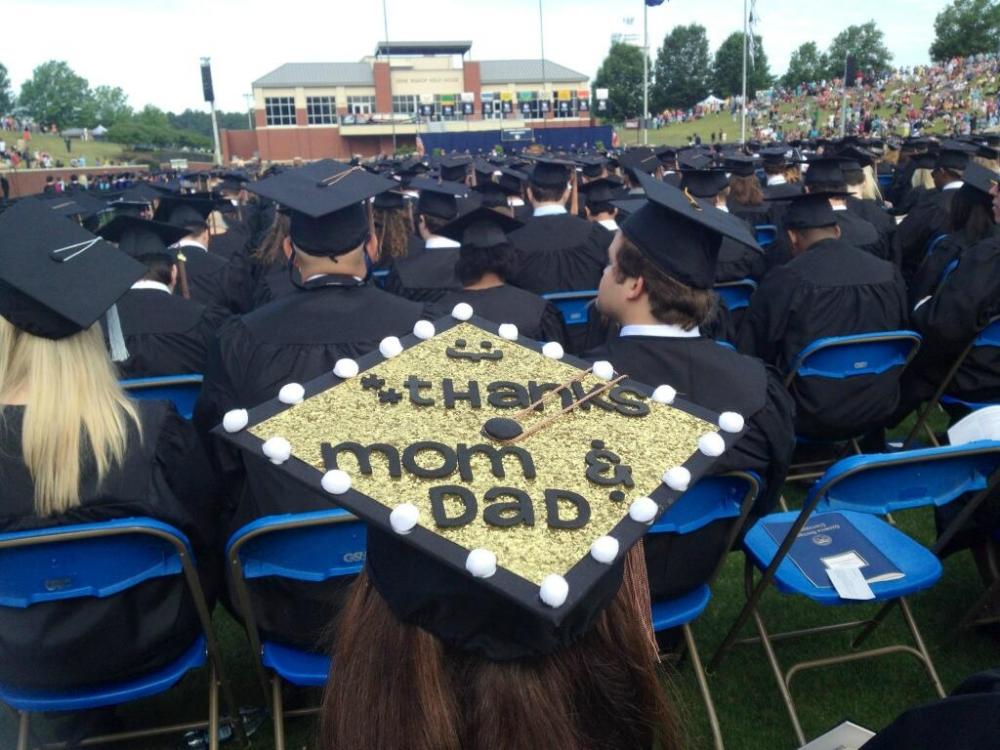
Section Branding
Header Content
Opportunities Improve For Recent Graduates
Primary Content

Over the last week thousands of students have graduated from colleges across Georgia and many of them already have offers of full time employment. University officials believe that is a sign of an improving job market.
“It is looking better in my observation as far as employment opportunities and next steps,” said Dr. Vince Miller, Associate Vice President for Student Affairs and Enrollment Management at Georgia Southern University.
In data released last month by the Bureau of Labor Statistics, new college graduates had a higher unemployment rate than the general population in October 2011. The unemployment rate for 20 – 29-year-old graduates was 13.5 percent, while the overall unemployment rate was just 9 percent.
Last month, the unemployment rate had improved to 7.5 percent nationally.
Dr. Miller said that improvement is evident on campus. About 40 percent of GSU’s nearly 2,500 spring graduates have secured full time jobs. Another 30 percent are headed to graduate school.
Emory University also reported positive preliminary numbers. Of its 2,200 new undergraduate degree holders, 20 percent have job offers and 40 percent are pursuing advanced degrees.
Executive Director of the Emory Career Center, Paul Fowler, said Emory typically has a high number of students who plan to go to medical school, law school or some other graduate program. He said for those planning to enter the job market immediately upon graduation from an undergraduate program, the University has increased its outreach to alumni.
“About five years ago we ratcheted up our efforts to go after alums nationally and internationally to insure that they were promoting internships within their organizations and full time hires,” said Fowler. “As many of my colleagues across the country had done many years before and tapped the well dry, Emory came in at a nice time when we really did need the support of the alum base across the country and across the world and they stepped up to the plate and so, we’ve seen probably at least 50% increase in the number of opportunities--employment organizations, companies--hiring specifically at Emory as a result of alumni investment.”
Fowler said even without those alumni connections, he has noticed more companies expanding their recruiting efforts at Emory.
“We’re consistently optimistic because of the indicators we receive both from the national trends and the economic trends indicating, obviously, that consumer confidence gaining and industry is growing,” Fowler explained. “On the other hand, even the simple indicators of the number of companies that have contacted us in the last month, well after the traditional full time hiring period has ended, indicating that they have now full time opportunities, which shows growth in the economy and in organizations’ hiring. So, it’s just nice to see that out of the blue in April we’ll receive a call from a company and say, ‘Boy, we need three more analysts this year. Can we get a position posted?’ Those windfalls that come in from out of the blue are both welcome and also an indication that there is a rebound in place, [because] we’re seeing that more.”
Dr. Miller said Georgia Southern adapted its career services programs after the economic downturn because universities have a responsibility to help their students and alumni throughout their careers.
“I think that it’s good for folks to know that with the increased expectation of families and students on, you know, what are they receiving in return for a college degree… institutions are really putting a lot of emphasis and great detail into helping those students be prepared for their next step after graduation,” said Miller.
GSU has changed its approach by encouraging students to start on their career path early in their college careers rather than wait until they are seniors seeking employment.
Tags: 2013, Georgia Southern, unemployment rate, graduation, spring, career, graduate school, commencement, Emory Unversity, opportunities, graduates, undergraduates
